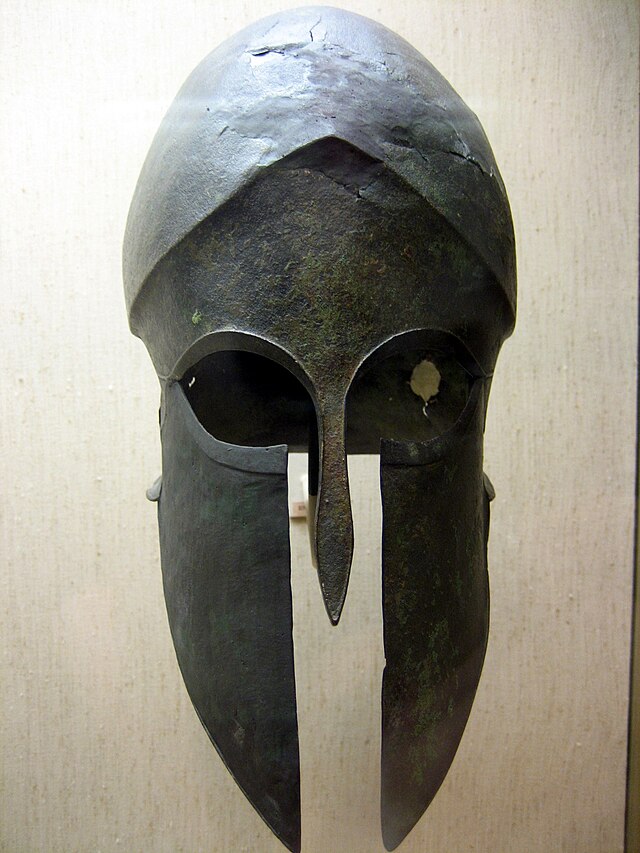The spectral army of the Phocians
The stratagem that managed to change the outcome of the conflict

Greek helmet - Wikicommons
When thinking about the wars fought by the ancient Greeks, people typically refer to the Persian Wars or the Peloponnesian War, reducing centuries of internal conflicts and skirmishes to just a few key events. As many historians point out, discussions about Greek warfare are often overshadowed because, compared to their Roman contemporaries, the Greeks were not particularly characterized as a warlike people. However, ancient sources tell a different story, detailing centuries of internal strife between neighboring peoples and regions.
One particularly fascinating case, both for its context and its unique execution, is recounted by the 5th-century historian Herodotus in his Histories. In Book VIII, paragraphs 27 and 28, Herodotus describes a battle between the Phocians and the Thessalians, which took place sometime after the Battle of Thermopylae. The two populations had been at odds for a long time, and the Phocians had previously managed to defeat the Thessalians. However, this time the circumstances were different. Attacked once again, the Phocians retreated to Mount Parnassus, and the battle's outcome seemed to favor the Thessalians.
In desperation, the Phocians sought the advice of a seer, who proposed an unusual strategy: he instructed them to cover the bodies of their 600 bravest warriors in white chalk and launch a night attack. There was only one rule to follow—strike down anyone who was not covered in white. With nothing left to lose, the Phocians decided to take this gamble.
That night, the Thessalians found themselves under attack by what seemed like a ghostly army—an eerie force of white-clad warriors striking with incredible fury. Overwhelmed by fear and convinced that their attackers were more supernatural than human, the Thessalian infantry was unable to react rationally and suffered yet another crushing defeat.
Herodotus provides an intriguing epilogue: despite their long-standing rivalry, when the Persian army later threatened the Phocians, the Thessalians did not hesitate to come to the aid of their fellow Greeks.
Franchi E., Memory studies e antropologia del conflitto. Prospettive interdisciplinari sulla guerra nel mondo antico, in «Nuova Antologia Militare. Interdisciplinary journal of the Italian society of military history», n.1 issue 2 (2020), pp.3-54
To view the passages of Herodotus' Histories you can use the PDF file offered by the Ancient Library of Corigliano Rossonato viewed in January 2025
2025-05-22
Salvatore Ciccarello
